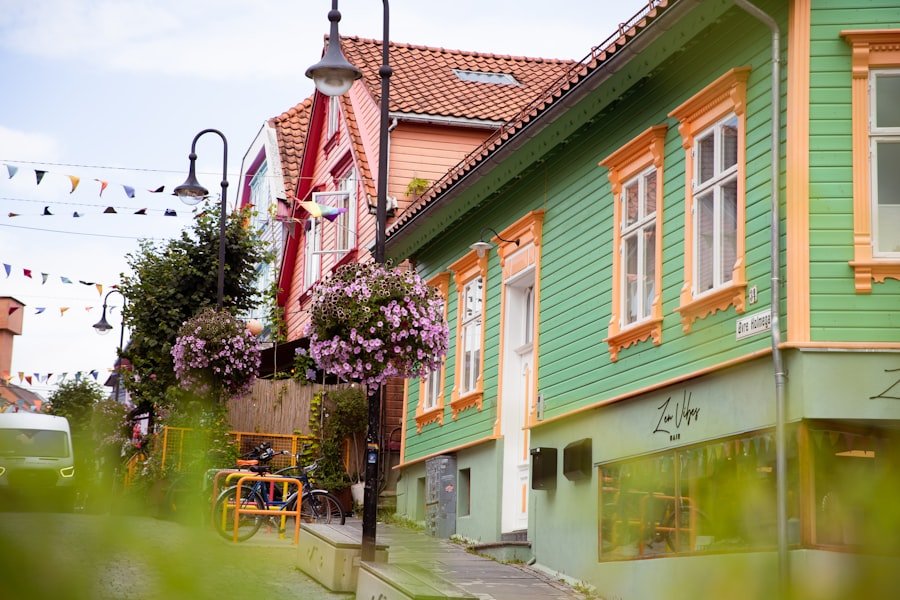

Customer Service Norwegian: How to Handle Clients and Customers in Norway
Norwegian culture is rich and diverse, shaped by its history, geography, and the values of its people. At the heart of this culture lies a deep respect for nature, which is reflected in the Norwegians’ love for outdoor activities and their commitment to environmental sustainability. When engaging with Norwegians, it is essential to appreciate their connection to the natural world, as it often influences their lifestyle choices and social interactions.
Understanding this cultural backdrop can significantly enhance your experience in Norway, whether you are visiting for leisure or conducting business. Etiquette in Norway is characterised by a sense of equality and informality. Norwegians tend to be straightforward and value honesty in communication.
This means that when interacting with them, it is important to be direct yet polite. Avoiding excessive flattery or overly formal behaviour is advisable, as it may be perceived as insincere. Additionally, punctuality is highly regarded in Norwegian society; being late can be seen as disrespectful.
Therefore, understanding these cultural nuances will not only help you navigate social situations more effectively but also foster positive relationships with the locals. Speak Norwegian Confidently. Enroll at NLS Norwegian Language School.
Table of Contents
ToggleSummary
- Norwegians value personal space and privacy, so it’s important to respect boundaries and avoid being too intrusive.
- Punctuality and reliability are highly valued in Norwegian culture, so it’s essential to be on time for appointments and deliver on promises.
- Building trust and establishing relationships takes time in Norway, so patience and consistency are key in developing strong connections.
- When handling complaints and conflict resolution, it’s important to approach the situation calmly and rationally, as Norwegians prefer to avoid confrontation.
- Embracing the concept of Janteloven, which promotes modesty and equality, is crucial for understanding Norwegian values and traditions.
Communication Style and Language
The communication style in Norway is generally characterised by a preference for clarity and brevity. Norwegians appreciate straightforwardness and often avoid small talk, especially in professional settings. This direct approach can sometimes be misinterpreted as rudeness by those from cultures that favour more elaborate conversational styles.
However, it is essential to recognise that this is simply a reflection of their cultural values, which prioritise honesty and efficiency over embellishment. Language plays a crucial role in communication, and while many Norwegians speak excellent English, making an effort to learn some basic Norwegian phrases can go a long way in building rapport. The NLS Norwegian Language School offers tailored courses that cater to various learning preferences, including 1 to 1 private classes and small group classes with a maximum of five students.
These settings provide an intimate learning environment where you can practice speaking and listening skills while gaining insights into the nuances of the language. By investing time in learning Norwegian, you demonstrate respect for the culture and enhance your ability to connect with locals on a deeper level.
Building Trust and Establishing Relationships

In Norway, trust is a fundamental component of both personal and professional relationships. Norwegians tend to take their time when forming connections, preferring to build relationships gradually rather than rushing into them. This approach stems from a cultural emphasis on reliability and integrity.
To establish trust, it is essential to be consistent in your actions and follow through on commitments. Demonstrating that you are dependable will help you earn the respect of your Norwegian counterparts. Networking in Norway often occurs through informal channels rather than structured events.
Engaging in social activities or community events can provide opportunities to meet people and foster relationships organically. It is also important to remember that Norwegians value authenticity; being genuine in your interactions will resonate well with them. As you build trust over time, you will find that Norwegians are warm and welcoming, eager to share their culture and experiences with you.
Handling Complaints and Conflict Resolution
When it comes to handling complaints or conflicts in Norway, the approach tends to be calm and rational. Norwegians prefer to address issues directly but in a respectful manner. If a problem arises, it is advisable to approach the situation with an open mind and a willingness to listen.
This attitude fosters constructive dialogue and helps to resolve conflicts amicably. In professional settings, it is common for Norwegians to seek consensus when addressing disputes. This collaborative approach encourages all parties involved to contribute their perspectives, leading to solutions that are acceptable to everyone.
If you find yourself in a situation where a complaint needs to be addressed, remember to remain composed and focus on finding common ground rather than assigning blame. By adopting this mindset, you will not only resolve the issue at hand but also strengthen your relationships with your Norwegian colleagues.
Importance of Punctuality and Reliability
Punctuality is a cornerstone of Norwegian culture, reflecting the value placed on time management and respect for others’ schedules. Being on time for meetings or social engagements is not just a courtesy; it is an expectation. Arriving late can be perceived as inconsiderate, so it is crucial to plan accordingly and allow for any potential delays when scheduling appointments.
Reliability goes hand in hand with punctuality in Norway. When you commit to a task or meeting, it is essential to follow through as promised. This reliability builds trust and demonstrates your professionalism.
In both personal and professional contexts, being dependable will earn you respect and strengthen your relationships within the community. By embracing these values of punctuality and reliability, you will find that your interactions with Norwegians become more fruitful and enjoyable.
Managing Expectations and Setting Boundaries

In Norwegian culture, managing expectations is vital for maintaining harmonious relationships. Norwegians appreciate transparency and clarity when it comes to discussing goals or objectives. Whether in a professional setting or personal interactions, it is important to communicate your expectations clearly from the outset.
This practice helps prevent misunderstandings and ensures that everyone involved is on the same page. Setting boundaries is equally important in Norway, where personal space and privacy are highly valued. Norwegians tend to maintain a certain distance during conversations, especially with those they do not know well.
Respecting these boundaries fosters mutual respect and comfort in interactions. When establishing boundaries, be clear about your needs while remaining open to dialogue. This balance will help create an environment where everyone feels respected and valued.
Personal Space and Respect for Privacy
Personal space is an integral aspect of Norwegian culture, with individuals typically valuing their physical distance during conversations. When engaging with Norwegians, it is advisable to maintain an appropriate distance, especially when meeting someone for the first time. This respect for personal space extends beyond physical proximity; it also encompasses emotional privacy.
Norwegians tend to keep their personal lives separate from their professional ones, so it is essential to be mindful of this distinction when interacting with colleagues or acquaintances. Respecting privacy also means being discreet about personal matters unless invited to share or discuss them. Norwegians may not readily disclose personal information or feelings; instead, they prefer to keep conversations focused on neutral topics until a deeper level of trust has been established.
By honouring these cultural norms regarding personal space and privacy, you will create a comfortable atmosphere that encourages open communication.
Embracing the Concept of Janteloven
Janteloven, or the Law of Jante, is a cultural concept deeply rooted in Norwegian society that emphasises humility and collective well-being over individual success. It discourages boasting or drawing attention to oneself, promoting the idea that no one is inherently better than anyone else. Understanding this concept is crucial for navigating social interactions in Norway, as it shapes how individuals perceive success and achievement.
When engaging with Norwegians, it is important to adopt a humble attitude and avoid overt displays of superiority or self-promotion. Instead of seeking recognition for individual accomplishments, focus on collaboration and teamwork. By embracing the principles of Janteloven, you will find that your interactions become more meaningful and aligned with the values of Norwegian society.
Appreciating Norwegian Values and Traditions
Norwegian values are deeply intertwined with the country’s history and natural environment. A strong sense of community, environmental stewardship, and respect for individual rights are central tenets of Norwegian life. Celebrating traditional festivals such as Constitution Day (17th May) or Midsummer (Sankthansaften) provides insight into these values while fostering connections with locals.
Engaging with these traditions can enhance your understanding of Norwegian culture while creating opportunities for meaningful interactions with locals. Participating in community events or learning about traditional customs can help bridge cultural gaps and foster appreciation for Norway’s rich heritage. By showing genuine interest in these values and traditions, you will cultivate deeper connections within the community.
Adapting to the Work-Life Balance
Norwegians place great importance on achieving a healthy work-life balance, which is reflected in their approach to both work and leisure activities. The typical workweek tends to be shorter than in many other countries, allowing individuals ample time for family, hobbies, and outdoor pursuits. This emphasis on balance contributes to overall well-being and job satisfaction among Norwegians.
When working in Norway or collaborating with Norwegian colleagues, it is essential to respect this balance by avoiding excessive overtime or work-related demands outside regular hours. Encouraging breaks during the workday can also enhance productivity while promoting a positive work environment. By adapting to this cultural norm of work-life balance, you will foster stronger relationships with your colleagues while contributing to a healthier workplace dynamic.
Incorporating Sustainability and Environmental Awareness in Customer Service
Sustainability is a core value in Norwegian society, influencing various aspects of daily life, including customer service practices. Norwegians are increasingly conscious of their environmental impact and expect businesses to adopt sustainable practices as well. When providing customer service in Norway, it is essential to incorporate environmentally friendly initiatives into your approach.
This could involve using eco-friendly materials, reducing waste, or promoting sustainable products and services. Demonstrating a commitment to sustainability not only aligns with Norwegian values but also enhances customer loyalty by showing that you care about their concerns regarding environmental issues. By integrating sustainability into your customer service practices, you will resonate with Norwegian consumers while contributing positively to the community’s overall well-being.
In conclusion, understanding Norwegian culture involves appreciating its values around communication styles, trust-building, punctuality, personal space, humility through Janteloven, work-life balance, and sustainability practices. By embracing these cultural nuances through tailored language courses at NLS Norwegian Language School—whether through private classes or small group settings—you can enhance your ability to connect meaningfully with Norwegians while navigating both social interactions and professional environments effectively.
Enroll in Norwegian Classes at NLS Norwegian Language School
If you want to learn Norwegian, you can register for classes here. We look forward to hearing from you and helping you become fluent in Norwegian.





